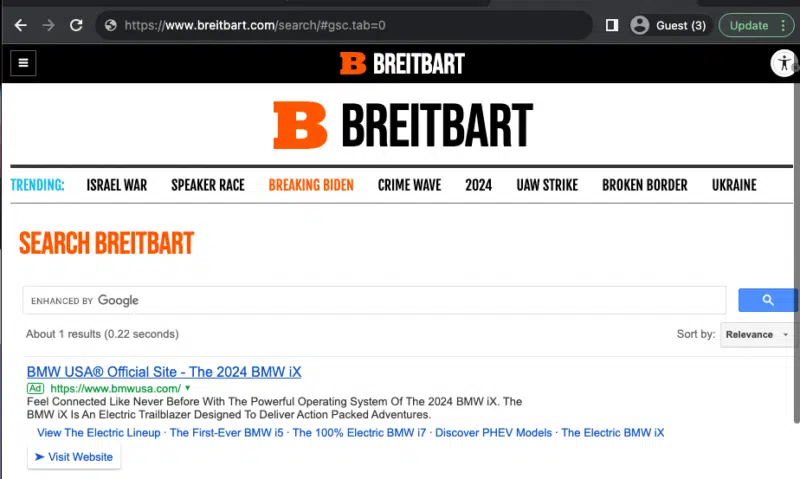Google denies placing search ads on compromising websites
Major brands were reportedly given the impression that their campaigns were exclusively appearing on Google.com.
Google has been accused of quietly placing search ads on non-Google websites, posing a potential risk to brand safety.
Google denies the accusation, saying Adalytics, publisher of the report, has a track record of publishing inaccurate reports that misrepresent Google’s products and make exaggerated claims, according to Dan Taylor, Vice President, Global Ads at Google.
Why we care. Compromising ad placement can harm brand reputation and reduce ad effectiveness. Advertisers need accurate and transparent data on ad placement. If true, Google has put advertiser brand reputation at risk and potentially wasted ad spend.
Scores of media buyers, under the assumption that their campaigns were running on Google.com, have reportedly discovered that their ads are appearing on compromising websites within the Google Search Partner (GSP) network instead, according to the study.
The GSP network websites include:
- Sites containing pirated content.
- Hardcore pornographic sites.
- Websites of companies located in countries such as Iran and Russia which may be under sanctions by the US government.
Brand safety concerns. The Adalytics study referenced an unnamed Fortune 500 company, which was reportedly “surprised” to lean that its ads were being served on “many” non-Google websites. Such websites included Breitbart.com – a site the company had specifically added to its account-level domain exclusion list (i.e. blocklist) several years beforehand. An Adalytics researcher commented:
- “This raises the possibility that ads were served on websites and publishers despite the brand’s deliberate efforts to achieve brand safety and exercise control over their media investments.”

Reporting issues. The Fortune 500 brand cited in the Adalytics study was unable to export a report detailing the specific websites where its search ads appeared within the GSP network. Consequently, the business couldn’t measure its exposure or confirm how often its ads were placed on sites like Breitbart.com, pornographic websites, Iranian websites, or those listed on the Treasury OFAC SDN list.
Google denies the accusations. Taylor responded to the research on X:
- “Adalytics has established a track record of publishing inaccurate reports that misrepresent Google’s products and make wildly exaggerated claims.”
- “We’ll review the report Adalytics published today, but our analysis of the sites and limited information already shared with us did not identify ad revenue being shared with a single sanctioned entity.”
- “The examples shared are from our Programmable Search Engine (ProSE) product, a free search tool we offer to small websites so that they can present a search experience directly on their sites.”
- “On ProSE, ads may appear based on the user’s specific search query; they are not targeted to, or based on, the website they appear on. Websites who merely implement ProSE do not get any ad revenue from those ads.”
- “ProSE represents a miniscule amount of our Search Partner Network. Adalytics’ revenue implications related to small sites like the examples we’ve reviewed are frankly absurd.”
How GSP network ads work. When advertisers run search ads on Google, they are automatically included in an additional ad display network that Google monetizes. This network consists of third-party websites, including those with Google’s custom search widget. If these sites haven’t opted out of displaying search ads, then ads running on the GSP network can appear on various websites across the internet.
What is Adalytics? Adalytics is a crowd-sourced advertising performance optimization platform that was set up to review and improve the digital advertising landscape.
Deep dive. You can learn more about Adalytics’ investigation by reading its report ‘Does a lack of transparency create brand safety concerns for search advertisers?‘
Opinions expressed in this article are those of the guest author and not necessarily Search Engine Land. Staff authors are listed here.
Related stories
New on Search Engine Land